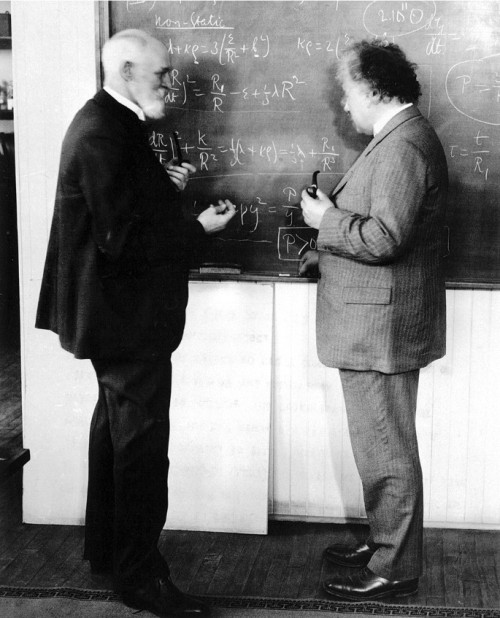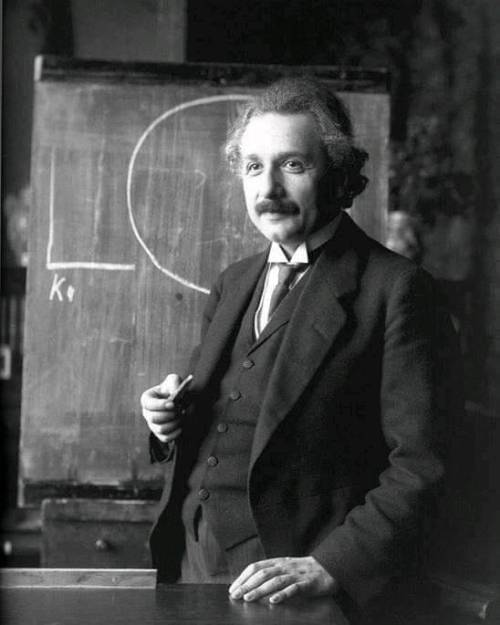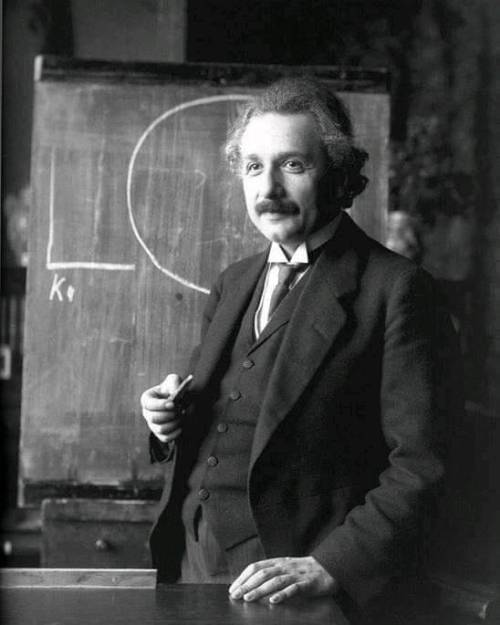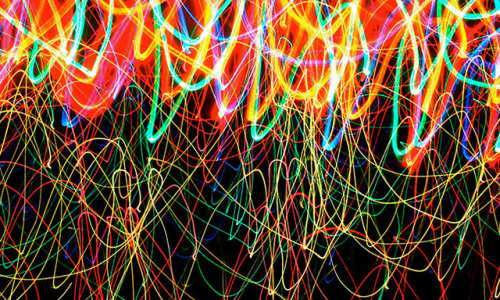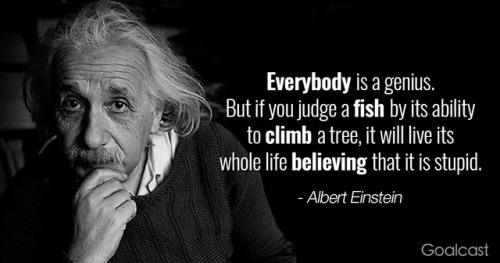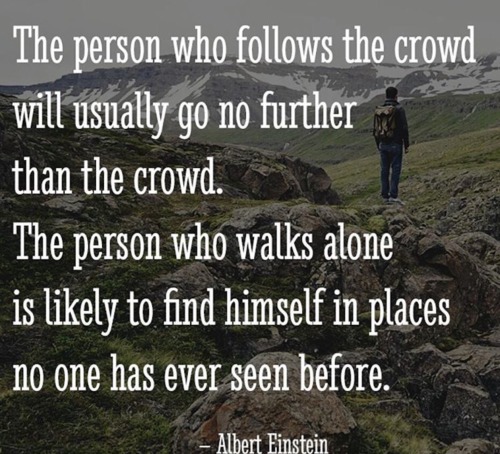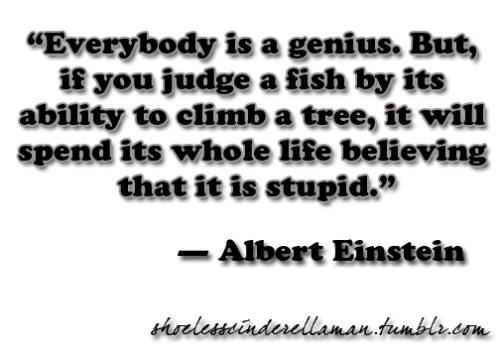#albert einstein
Theoretical physicists; Dr. Willem de Sitter and Albert Einstein discussing equations that describe the Einstein–de Sitter model of the universe on a Caltech blackboard, Pasadena in 1932.
Post link
The book “100 authors against Einstein” was published in 1931 to disprove Einstein’s Relativity. When Albert Einstein was asked to comment on this denunciation of relativity by so many scientists, he told the press;
“Why a hundred? If I were wrong, one would have been enough”
Post link
Einstein’s general theory of relativity has been described as the greatest scientific triumph in history, a geometric theory of gravitation relating local spacetime curvature with the local energy, momentum and stress within that spacetime:
Rᵤᵥ - ½gᵤᵥR = 8πG/c⁴•Tᵤᵥ
Where;
Rᵤᵥ - ½gᵤᵥR - Describes the curvature of spacetime.
8πG/c⁴•Tᵤᵥ - Describes the matter and energy in spacetime.
Today we mark the 67th death anniversary of undoubtedly the greatest mind ever in history, theoretical physicist and Nobel laureate Albert Einstein who died on this day 18th April 1955 in Princeton, New Jersey.
Post link
If you ever feel dumb just remind yourself that Albert Einstein never operated a smartphone, thus making you smarter.
You thought quantum mechanics was weird: check out entangled time
In the summer of 1935, the physicists Albert Einstein and Erwin Schrödinger engaged in a rich, multifaceted and sometimes fretful correspondence about the implications of the new theory of quantum mechanics. The focus of their worry was what Schrödinger later dubbed entanglement: the inability to describe two quantum systems or particles independently, after they have interacted.
Until his death, Einstein remained convinced that entanglement showed how quantum mechanics was incomplete. Schrödinger thought that entanglement was the defining feature of the new physics, but this didn’t mean that he accepted it lightly. ‘I know of course how the hocus pocus works mathematically,’ he wrote to Einstein on 13 July 1935. ‘But I do not like such a theory.’ Schrödinger’s famous cat, suspended between life and death, first appeared in these letters, a byproduct of the struggle to articulate what bothered the pair.
Post link
This Is Why Understanding Space Is So Hard
By Dan Falk
If all the matter in the universe suddenly disappeared, would space still exist? Isaac Newton thought so. Space, he imagined, was something like Star Trek’s holodeck, a 3-dimensional virtual-reality grid onto which simulated people and places and things are projected. As Newton put it in the early pages of his Principia: “Absolute space, of its own nature, without reference to anything external, always remains homogeneous and immovable.” 1
This seems persuasive in everyday life. I’m walking east, you’re walking west, and the post office stays put: The frame of reference remains static. But Newton’s contemporary, the German mathematician and philosopher Gottfried Leibniz, balked at this idea of absolute space. Take away the various objects that make up the universe, he argued, and “space” no longer holds any meaning. Indeed, Leibniz’s case starts to look a lot stronger once you head out into space, where you can only note your distance from the sun and the various planets, objects that are all moving relative to one another. The only reasonable conclusion, Leibniz argued, is that space is “relational”: space simply isthe set of ever-changing distances between you and those various objects (and their distances from one another), not an “absolute reality.” 2
Post link
INSIGNIFICANCE (1985). Nicolas Roeg directs an imaginary encounter between Albert Einstein and Marilyn Monroe.
Post link
“Ci sono due modi per vivere la vita. Uno è pensare che niente è un miracolo. L'altro è pensare che ogni cosa è un miracolo.”
-Albert Einsten

